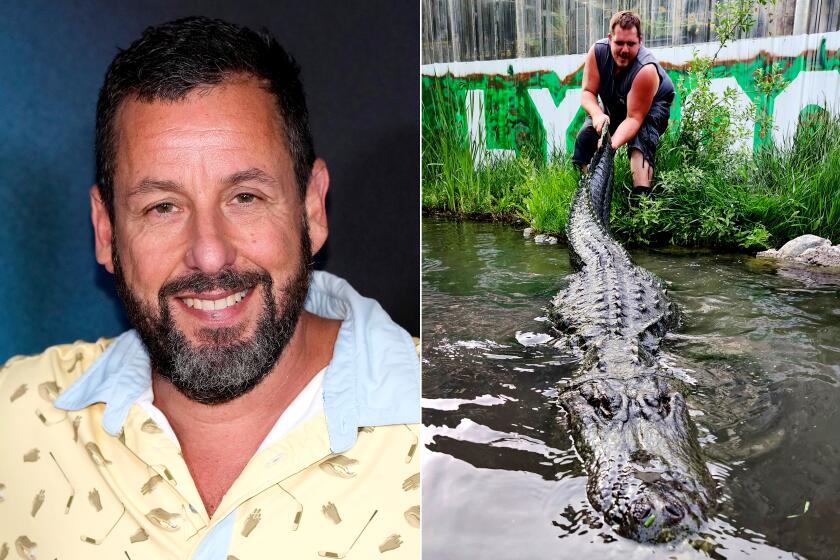New locations upstaging Hong Kong films
- Share via
HONG KONG — Bruce Law has made a career out of rolling flaming cars down mountainsides and staging spectacular explosions -- in crowded Hong Kong. These days, though, he’s usually doing those stunts in mainland China.
Up until the mid-1990s, tiny Hong Kong was the world’s third-biggest film producer, churning out some 300 films a year, with local box office averaging more than $170 million a year.
The eclectic mix of kung fu, historical epics, police thrillers and comedies has nurtured some of Asia’s biggest stars: martial arts legends Bruce Lee and Jackie Chan, “Crouching Tiger, Hidden Dragon” heartthrob Chow Yun-Fat and James Bond girl Michelle Yeoh.
Some local stars have moved on to Hollywood; many more to China. Meanwhile, the number of films made locally has shrunk to about 100. And last year, the box office was an anemic $45 million.
It’s plunged ever further with the outbreak of severe acute respiratory syndrome, as residents have stayed home out of fear they might catch the virus in a crowded theater.
Even before SARS struck, rampant piracy of movies and the popularity of computer games had lured many away from once-packed cinemas -- as elsewhere. Meanwhile, hits made in mainland China and elsewhere in Asia -- especially South Korea and Thailand -- are upstaging local films.
“When Hong Kong movies were successful, many people came here to visit and to see film stars. But now, there’s nothing like that anymore,” action star Chan said during a recent appearance. “If it goes on like this, Hong Kong movies are finished.... We can only wait for a miracle.”
Law, one of Hong Kong’s best-known stuntmen, got his start in the mid-1980s as a motorcycle rider in Chan’s “Police Story” series and has worked in more than 200 films here, not counting television programs and commercials.
Now, he finds Hong Kong “too small” and is looking toward Hollywood.
“I just told my wife I’ll need to spend the next few years outside Hong Kong,” said 41-year-old Law, who earned a black belt in tae kwon do before getting into moviemaking.
“The audience doesn’t care. Who cares where they shoot the film? Who cares where the money comes from?” Law said. “I can move anywhere. I can take my team with me. It may be hard, but still the quality is good.”
Most big recent productions have bypassed Hong Kong for China. Taiwanese filmmaker Ang Lee’s 2000 hit “Crouching Tiger, Hidden Dragon,” which won four Academy Awards, was filmed in various mainland locations. Ditto for Chinese director Zhang Yimou’s 2002 historical epic, “Hero.” For its World War II epic, “The Great Raid,” scheduled for a 2004 release, Miramax chose Shanghai as well as Queensland, Australia, to stand in for the Philippines.
“Now the Chinese know they can do it themselves,” said Law Kar, a veteran actor, screenwriter and film critic.
Kar and others working in the industry say local films are floundering mainly because they are usually put together with haphazard financing, lightning fast production and razor-thin budgets.
Having seen countless industries leave for the Chinese mainland, Hong Kong is loath to let yet another one go, especially one so glamorous. Filmmaking employs only about 6,000 workers in this city of 6.7 million people, but the government estimates that the industry added $205 million to the economy in 2001. Also, films shot here showcase Hong Kong as a destination for tourism and business.
More to Read
Only good movies
Get the Indie Focus newsletter, Mark Olsen's weekly guide to the world of cinema.
You may occasionally receive promotional content from the Los Angeles Times.










